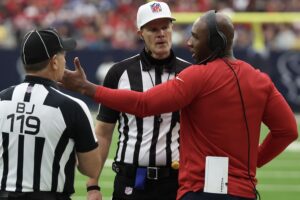Vermont Sports Betting Rules Approved, Licenses Open for Bids

Vermont has initiated the bidding process for online sportsbook licenses in the state as of Wednesday, July 19. The directors of the Vermont Department of Liquor and Lottery (VDLL), which is in charge of regulating gambling, signed off in its new rule set on Monday.
Those proposed rules have now been given the all-clear for license applications to open, marking a significant step towards establishing a legal sports betting program in The Green Mountain State.
The Request for Proposal (RFP) was posted by regulators on Wednesday. All bids will be due by August 28. The goal is to have a regulated Vermont sports betting market in place by January 1, 2024.
Nimble and Responsive
The state’s sports betting law was signed last month by Governor Phil Scott. It allows for the award of two to six sportsbook contracts.
The new rule set was signed in a short 12-minute meeting of the VDLL board on Monday 17, and proposals for licenses opened on Wednesday.
The proposed rules had been open to comment from operators, with several major potential applicants, such as BetMGM, offering feedback.
However, VDLL Commissioner Wendy Knight also stressed that none of the rules are set in stone and could change once the market is launched.
“That’s the way the legislature set it up, so that we could be as nimble and responsive as possible,” she said.
“And I suspect that as we move forward, after we… we get this up and running, and we launch, that we will see things that are working and things that aren’t in feedback.”
The licenses will be awarded through a competitive bidding process, overseen by the Vermont Department of Liquor and Lottery. The department has established a scoring system that considers factors such as an operator’s track record and revenue sharing.
At least four operators so far, including BetMGM, FanDuel, DraftKings, and Caesars Sportsbook, are expected to file bids.
Sportsbook Licences up for Bids
The RFP outlines the requirements for potential sportsbook operators and the detailed application process.
Contracts will be awarded for three years, with the option to renew for up to two more years. Bids will be evaluated on a 1,000-point scale, with scores based on a variety of technical and revenue categories, including a company’s financial stability, ethics, software quality, compliance, and responsible gaming program.
Operators must also pay a $550,000 operator fee and agree to a minimum 20% revenue sharing requirement. Additional points will be awarded to companies that agree to additional revenue sharing up to 50%.
Across the nation, operators often look to local community investments and revenue share programs to gain favor with local politicians. For example, there’s Pittsburgh, Pennsylvania, where Live! Casino Pittsburgh recently celebrated the positive effects of its 2% revenue share with its host county, Westmoreland.
Up and Running for the Super Bowl
Vermont regulators have worked in language to the legislation that ensures operators contribute as much as possible to the state’s coffers. As part of their bids, sportsbooks must submit a “plan for maximizing sustainable, long-term revenue for the state, including a detailed market analysis.”
This could be attempt to avoid later potentially disruptive changes in tax structure, such as in Ohio where lawmakers voted to double the sportsbook revenue tax rate just six months after opening the market.
Vermont Lottery Commissioner Wendy Knight expressed hope to have a decision on which bids will be selected by the end of September.
This will initiate a negotiation process that is expected to take a couple of months to complete, in time to have betting in place by January.
“We’ll get it up and running in time for the Super Bowl,” she said.
That is a relatively fast turnaround, but not as quickly as another state that legalized sports betting in 2023 – Kentucky. The Bluegrass state has set a September 7 date for its sports betting market launch, after the regulator’s new rules were approved earlier this month.
That’s well before the January 1 to February 11 Super Bowl date range which Vermont’s regulators are aiming for. But Kentucky did have a month or so head start.











